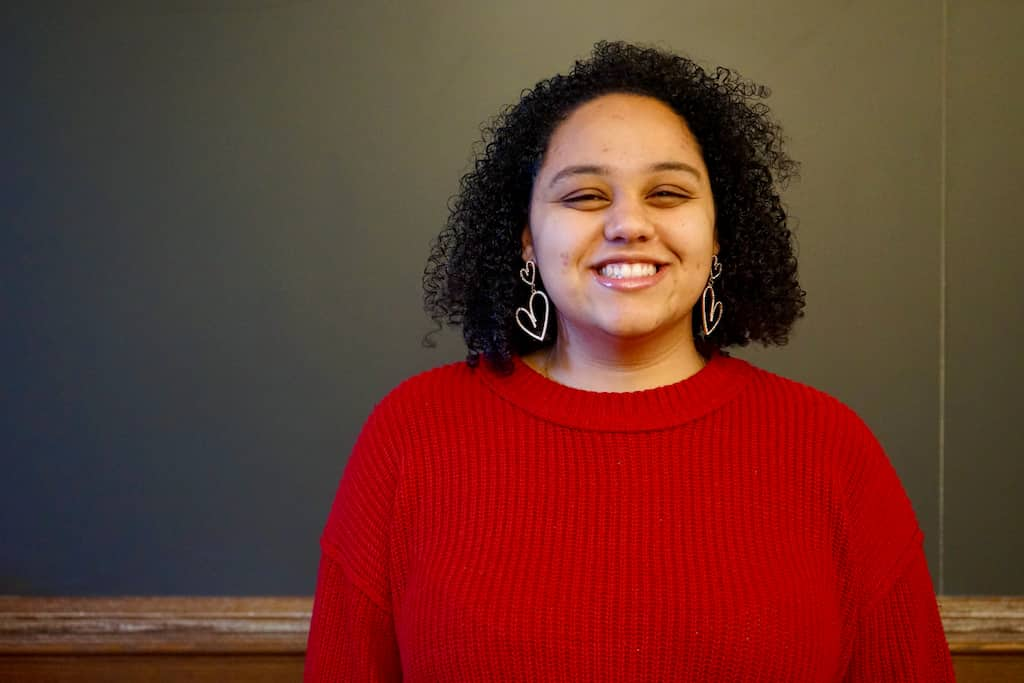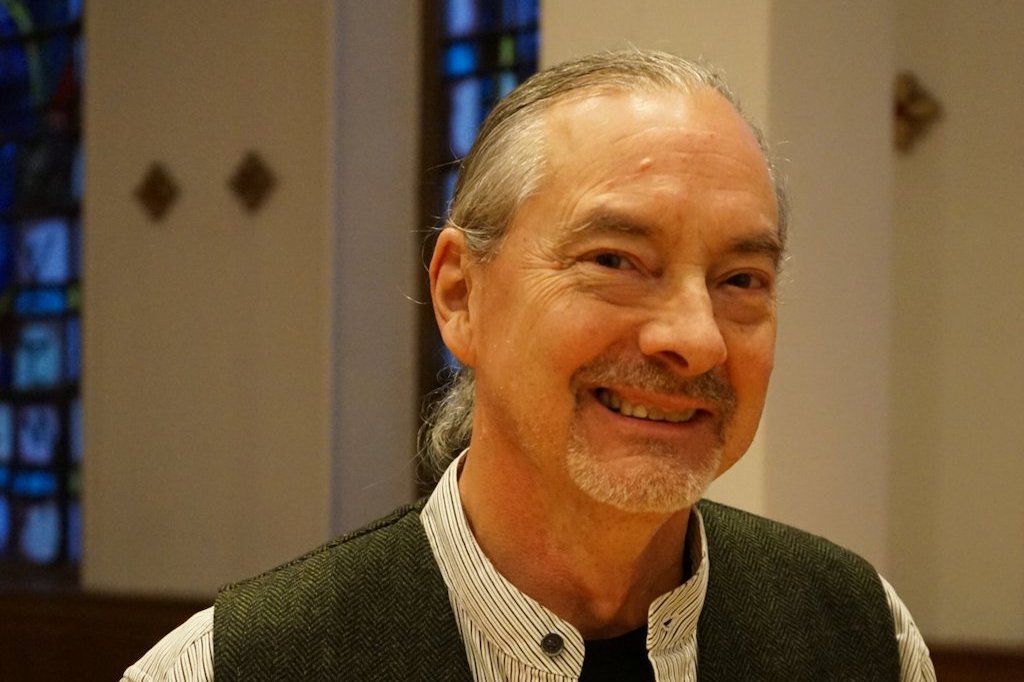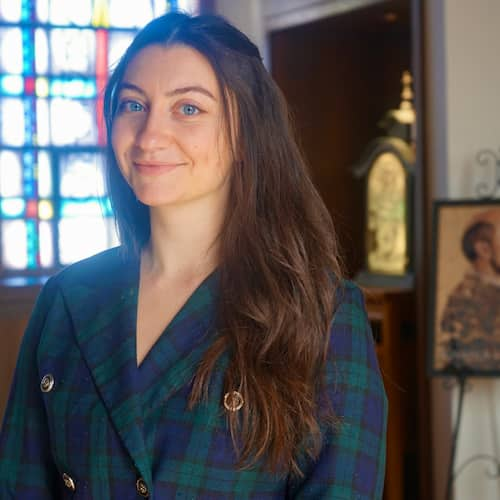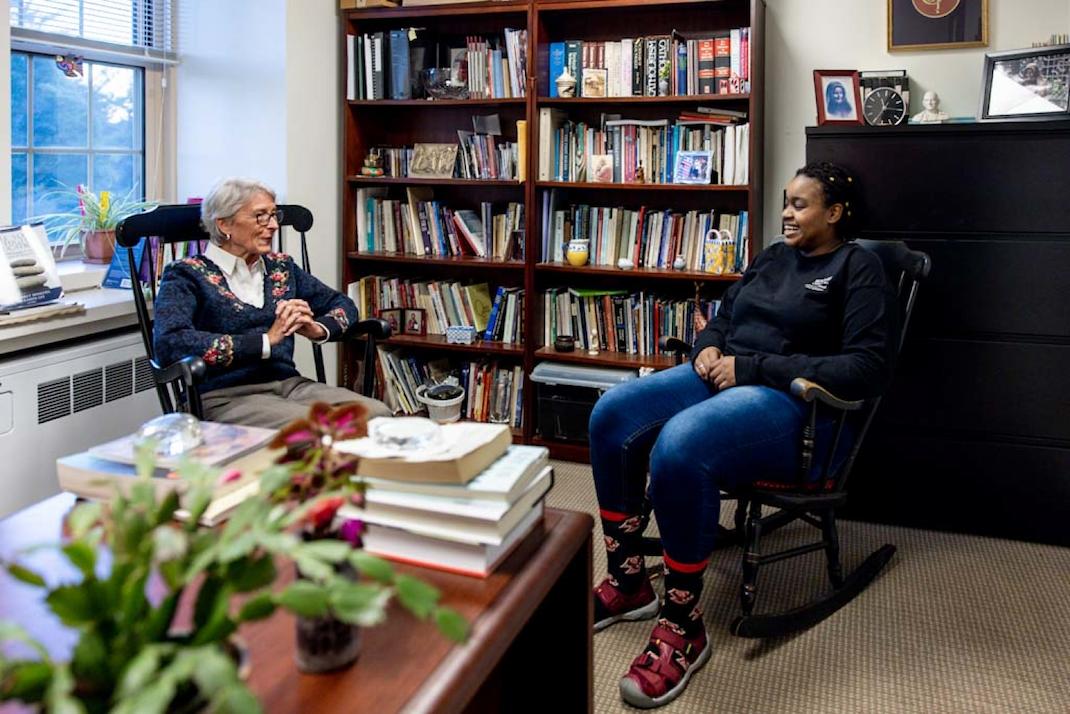What were your undergraduate major & institution?
I graduated with a bachelor's degree in psychological science from Mount Mary University in Milwaukee, Wisconsin.
What were you doing immediately before coming to CSTM?
I graduated a semester early in December 2023, so I spent my time before coming to CSTM with friends and family. I lived life to the fullest once I knew it would be my last summer in Milwaukee. I went to a lot of concerts, festivals, and fun events.

When did you first realize you wanted to pursue graduate studies in theology? How did you know?
I became intensely interested in theology during my final semester at Mount Mary. We had a new professor who taught a moral theology class I was taking. He urged me to take a theology minor or double major, and I remember being sad it was my last semester, so I couldn't add a major or minor. He made me think of theology in entirely different ways. I was fascinated with morality, sin, and, most of all, our work regarding liberation theology.
I knew I wanted to get a degree in mental health counseling and utilize it to provide mental health care to disadvantaged communities. Throughout the class, I was deeply interested in how the exploration of faith and God are also methods of care, which inspired an interest in pastoral care. God laid out my path, and it turns out the professor of my moral theology class received his Ph.D. from and was previously a professor at Boston College. He urged me to look into the school, and when I found the dual degree program, it felt meant to be. The rest is history.
What people, experiences, courses, etc. informed this call?
Dr. Karanovich, the professor of that moral theoloy class, was my biggest inspiration. He connected me to Denning Aaris, who made CSTM feel warm and welcoming. After meeting with her via Zoom, I knew that as terrifying as this was, I would pursue it. Throughout this, the consistent support from my family and friends was concerning and helped remind me of my capabilities. Before moving to Boston, I never left Milwaukee, and without the support I received, I never would have.
Were there any roadblocks in your discernment process? How did you navigate them?
In my head, there was no way I was moving to Boston if my mom wasn't moving with me. We discussed it, and I consistently confirmed this was a family move. She sat me down and told me I needed to do this alone, and I remember telling her I wasn't going without her. Looking back on it, I realize my mom was not in the position to move halfway across the country, and she knew this was my moment to truly grow beyond what I thought was possible. I remember crying so much and feeling so hopeless, and I honestly did not believe this was something I could do by myself. Her consistent support, encouragement, and reassurance allowed me to take that leap. I navigated through leaning on those I love the most and deepening my relationship with God.
“ I navigated through leaning on those I love the most and deepening my relationship with God. ”
Why did you choose CSTM for your theological studies?
Other than the support from Dr. Karanovich, Denning Aaris and Anthony Russo, the real deciding factor was accepted student days. I was so scared. It was entirely out of my comfort zone. I remember staying to myself out of fear of judgment. I knew everyone here was well-educated in theology and I felt like an imposter. However, I quickly realized how sweet everyone was, and now the person I shared a hotel room with is my current roommate.
In what ways do you see yourself using your degree?
While our environments are critical, we are in the confines of our minds. Mental health matters, and people suffer every single day. Sometimes, it feels like hope is slipping, and I have realized that seeking a deeper relationship with God has granted me an unimaginable amount of hope that no one can steal.
Before coming to CSTM, I placed my faith in other people and developed attachments, which made it unbelievably difficult for me to make this move in the first place. Now, I place my hope and faith in God, which has helped me in ways I cannot describe. I have healthier relationships, I believe in myself more, and I can take risks I never thought I would be capable of.
Most importantly, nothing I learn ends when I graduate. After receiving my degrees, I plan on giving back to my communities. What's the point of being privileged enough to receive this education if I fail to give back to where I came from? I want to help impoverished communities, and I wish to combat the mental health crisis that is rampant in black and brown communities. I plan to marry the two degrees in a way that encourages a better understanding of mental health and an unwavering hope through God.





